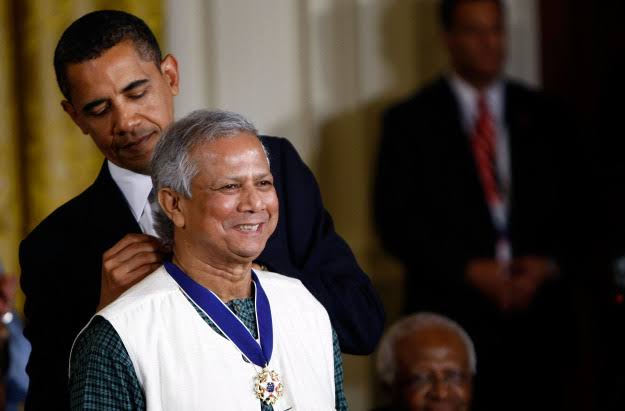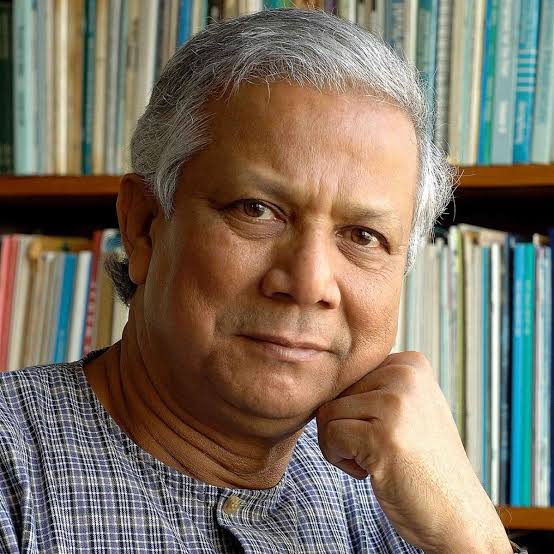
Renowned Nobel Peace Prize laureate, Muhammad Yunus, credited for transforming lives through microfinance, faces a six-month jail term in Bangladesh after being convicted of violating labor laws.
The case, criticized by supporters as politically motivated, alleges Yunus and three colleagues failed to establish a workers’ welfare fund in Grameen Telecom, one of his founded firms.
Despite being immediately granted bail pending appeals, Yunus and his associates deny the charges.
The Lead prosecutor Khurshid Alam Khan told AFP, a labour court in the capital Dhaka convicted and sentenced them to “six months’ simple imprisonment.
“All four were immediately granted bail pending appeals,” he added.
Another lawyer for Yunus, Abdullah Al Mamun, told AFP, “This verdict is unprecedented, we did not get justice.”
Yunus has equally earned the enmity of long-time Prime Minister Sheikh Hasina, who has accused him of “sucking blood” from the poor.
The 83-year-old, facing over 100 other charges, asserts that his numerous social business ventures were not for personal gain.
“They were not for my personal benefit,” Yunus stated.
Another of his lawyers, Khaja Tanvir, told AFP that the case was “meritless, false, and ill-motivated”.
“The sole aim of the case is to harass and humiliate him in front of the world,” he disclosed.
READ MORE: Rwanda’s President Kagame Intends Running For Fourth Term
Former Amnesty chief and current UN special rapporteur, Irene Khan, labels the conviction a “travesty of justice,” highlighting concerns for the safety and freedom of the esteemed social activist.
“A social activist and Nobel laureate who brought honour and pride to the country is being persecuted on frivolous grounds,” she said.
The verdict has drawn international condemnation, with figures like former US president Barack Obama and ex-UN secretary-general Ban Ki-moon denouncing the perceived judicial harassment against Yunus.
More than 100 of his fellow Nobel laureates, said they feared for “his safety and freedom”.








Leave a Reply